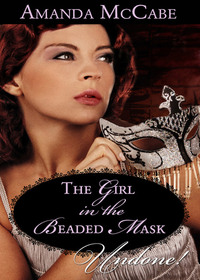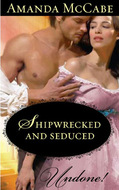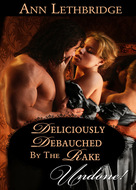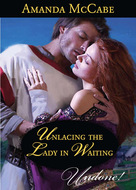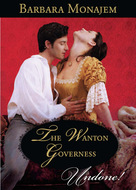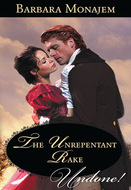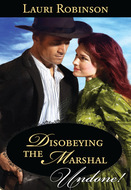Raamatut ei saa failina alla laadida, kuid seda saab lugeda meie rakenduses või veebis.
Loe raamatut: «Girl in the Beaded Mask»

Girl in the Beaded Mask
Amanda McCabe
MILLS & BOON
Before you start reading, why not sign up?
Thank you for downloading this Mills & Boon book. If you want to hear about exclusive discounts, special offers and competitions, sign up to our email newsletter today!
Or simply visit
Mills & Boon emails are completely free to receive and you can unsubscribe at any time via the link in any email we send you.
England, 1922
David Carlisle believes no woman would want to marry the broken and isolated man who has returned from the trenches of France. Especially vivacious Lady Louise Hatton, better known as Lulu—the one woman who makes his heart begin to thaw with her bright smile.
What David doesn’t realize is that Lulu has been fantasizing about him her whole life. And at a scandalous masked ball, she’s determined to show David just how badly she wants him….
I was so excited to have the chance to write a story set in the 1920s! I’ve been fascinated by the era ever since I was a teenager—I blame The Great Gatsby and old silent Louise Brooks movies. The music, the fast cars, the cocktails, and above all the gorgeous clothes! It’s a fascinating time, filled with enormous change and upheaval, dashing men, and spirited, independent women. It’s the perfect setting for a romance.
Before I jumped into David and Lulu’s story, I watched silent movies and various versions of Gatsby over and over, and did a lot of reading. Here are a few great sources I came across:
Nathan Miller, New World Coming: The 1920s and the Making of Modern America(2003)—my story is set in England, but this book was huge help in tracing trends and fads of the era
DJ Taylor, Bright Young People (2007)—an account of the high life in between-the-wars England
Humphrey Carpenter, The Brideshead Generation (1989)
Ronald L. Davis, ed., The Social and Cultural Life of the 1920s (1972)
Marion Meade, Bobbed Hair and Bathtub Gin (2004)
Lucy Moore, Anything Goes: A Biography of the Roaring ‘20s (2010)
Contents
Chapter One
Chapter Two
Chapter Three
Chapter Four
Chapter Five
Chapter Six
Chapter One
1922
“Mum is going to absolutely kill you if she catches you with that,” a lazy young voice said, punctuated by the slow turning of a magazine page.
Lady Louisa Hatton—known by everyone as Lulu—looked down at the cigarette between her fingers. It was dyed a stylish peacock-blue, and sent curls of silvery smoke out the open window into the warm summer breeze. It looked terribly chic and sophisticated, but… “And she would be absolutely right. They’re perfectly vile. I’ll have to learn to be glamorous without them.”
She extinguished it in the crystal bowl set on the window ledge. The foul thing disposed of, she tightened the sash on her dressing gown and turned around to face her younger sister. Jessica lay sprawled out in the middle of Lulu’s bed, her feet propped on the carved headboard as she read the latest issue of Town Talk.
Town talk—that all seemed terribly far away in the middle of a quiet country summer. Her London debut season seemed ages ago, even though it had just ended. Beaded gowns, tea dances, trips to the theater, masquerade balls…and the disappointing, fumbling kisses from men behind screens and potted palms. How could something be so exciting and so dreary at the same time?
She had waited so long to be grown up, to be part of the real world at last. She was so tired of being pushed to the side, of being “protected” from things considered “unpleasant” for her own good. But being a woman wasn’t all it was cracked up to be, either. She still wasn’t really allowed to have fun.
And the young men she met at those carefully orchestrated dinners and dances—they weren’t what she had hoped for, either. Years of reading stuff like Jane Eyre and those delicious sheikh novels from America didn’t prepare her for the truth of English courtship. For young men whose palms were damp as they danced with her, who talked on and on about cricket and house party pranks. They weren’t Rochester or Mr. Darcy. They weren’t…
Well, they weren’t him. They weren’t David Carlisle, which was so silly since she hadn’t seen David in nearly four years. Even before that, all those summers when he would come to Hatton Hall to visit his school friend, her poor brother William, she had only been Bill’s pesky kid sister to him. He teased her, laughed at her, loaned her books, and then went off to dance with beautiful debutantes.
But Lulu built a whole dream around David Carlisle, with his crooked smile and bright blue eyes. He became her ideal, and she was sure that once she really grew up, once she was one of those debs, with their satin gowns and upswept hair, he would see that they were meant for each other. No one was as handsome and smart and sophisticated as he was. No one made her feel the way he did when he just looked at her.
Then the war came, and all her girlish dreams were just one of the millions of lost things. After the Armistice, David visited Hatton Hall once more, to tell them about Bill’s last days. He wasn’t the same David at all. His eyes were dark and haunted, and he walked with a stick. The left side of his face was red with scars. He had kissed Lulu on the cheek and said, “You’ve grown up while I was gone.” But she could tell he was not really there, that he had left his old self far away.
She looked for him in London, hoping he would appear at some party or at the opera. He never did, and she heard little gossip about him.
Lulu pushed away sad thoughts of David Carlisle. It did no good to dwell on him and on all that was lost, on old hopes and loves. It was just summer here at Hatton Hall, stirring up memories. In London, where everything was new and blindingly bright, she could hide from the past. Here it was everywhere she turned.
“What’s going on in Town Talk, then?” she asked brightly. She went and perched on the edge of the bed beside Jessica, peering over her sister’s shoulder at the glossy photos of Bright Young People at various parties. Dancing in elaborate fake Watteau gowns, swimming on the French Riviera, riding in sleek cars, champagne glasses always aloft and painted mouths laughing.
“Oh, heaps,” said Jessica as she turned the page. “Or at least there was, until everyone left London for the summer. Is it always like this in the city?”
Lulu studied a photo of party-goers dressed as pinafored babies for a theme party, riding in giant prams. “Not under Mum’s watch it’s not,” she said. “London is all staid tea dances and the opera for a deb like me.”
“I shouldn’t like London anyway,” Jessica said decisively.
“Wouldn’t you?”
“No. I’m sure I couldn’t take Angel there and I can’t live without her.”
Angel was Jessica’s favorite pet, a smelly lamb she dressed up in little jackets and took around on a silk cord lead. “It’s true Mum wouldn’t let you take Angel to London, which is too bad. She’d be a big hit at parties.”
“Would she? Maybe London wouldn’t be so bad after all then.” Jessica gave her a shrewd look. “But you didn’t seem like you’d had much fun there when you got home.”
“I had fun,” Lulu protested. “It just wasn’t entirely what I expected.”
“And now you’re back at Hatton Hall, where nothing happens at all.” Jessica suddenly sat up straight, staring down at the magazine. “Or maybe sometimes things do happen.”
“What do you mean?”
“I’m talking about Lord Finch-Granley’s summer masked ball, of course! At Granley Park. It’s only a few miles away, and it’s…” Jessica turned the page. “Next week! Oh, I’ve always wanted to see the Granley Ball.”
“You and everyone else.” Lulu snatched the magazine out of her sister’s hands to see the article for herself. The Granley Ball was famous, not only in the neighborhood but also throughout English Society. Lord Finch-Granley, who had also once been a friend of Bill’s, had been holding his “start of summer” party every year since the end of the war, and it was legendary for its lavishness and style, for the wild times to be had there. Invitations were hotly sought-after.
Not that an invitation was required. Plenty of people just piled into cars and went. There was always copious amounts of food and champagne to go around.
“Mum would never let me go,” Lulu murmured. Her mother was always pursing her lips when she talked of the “goings on” at Granley Park, which was never a good sign. And their father always went along with her. It made life easier that way, he claimed.
She turned the page to read about who was expected to attend the ball. Lords and ladies, of course, and writers and film stars, shady American businessmen, musicians, maybe even a European prince. There were photos of a few of them, shining with jewels and wide, white smiles. Of course they smiled—they were going to have loads of fun at the Granley Ball, while she stayed home and played mah-jongg with Mum.
Then a small image at the bottom of the page caught her attention. It was David, dressed in a sharply cut white suit and leaning against a Bentley. His face was shadowed by the brim of his hat, but she could tell right away it was him. The grim set to his jaw and the expressionless look on his chiseled, handsome face were just the same as when she last saw him on that sad day here at Hatton Hall.
A slender woman in a dark satin drop-waist dress and feathered cloche hat clung to his arm. Unlike David, she smiled happily for the camera.
And will the Granley guest list include the elusive, reclusive and oh-so-gorgeous David Carlisle, seen here with Lady Elizabeth Ashley at a rare appearance at the races? the caption said. We’re betting the merriment can lure him out of isolation at last!
David was going to the Granley Ball?
Feeling all in a daze, Lulu put down the magazine and rushed over to her dressing table to study her reflection in the oval mirror. She had at last managed to persuade her parents to let her bob her hair, and the dark red waves curled around her ears and the nape of her neck. Her wide green eyes shone back at her with sudden hope and excitement. She was fashionably slender under her silk robe—surely she could be just as pretty as that Lady Elizabeth what’s-her-name!
And the hateful freckles over her nose, long the bane of her life, could be powdered away.
Maybe, just maybe, if David saw her again he would realize she really was grown up. That she could be the one to help him live again at last. It was a silly scheme, a real long shot, but she had to try it.
And she knew just what to wear while doing it. The perfect armor to battle for David’s heart.
“I have to find the Poiret,” she said, and whirled around to pull open the carved doors of her wardrobe. All her London clothes, unworn since the return to Hatton Hall, hung there. A jumble of creamy satin, inky chiffon, shining rainbow beads, fur trim and delicate lace ruffles. She found a box at the very bottom, and threw the lid back.
“Yes,” she said. “This is definitely the one.”
Jessica leaped off the bed, clapping her hands. “Are you going to sneak out to the Granley Ball? How exciting!”
Tasuta katkend on lõppenud.

